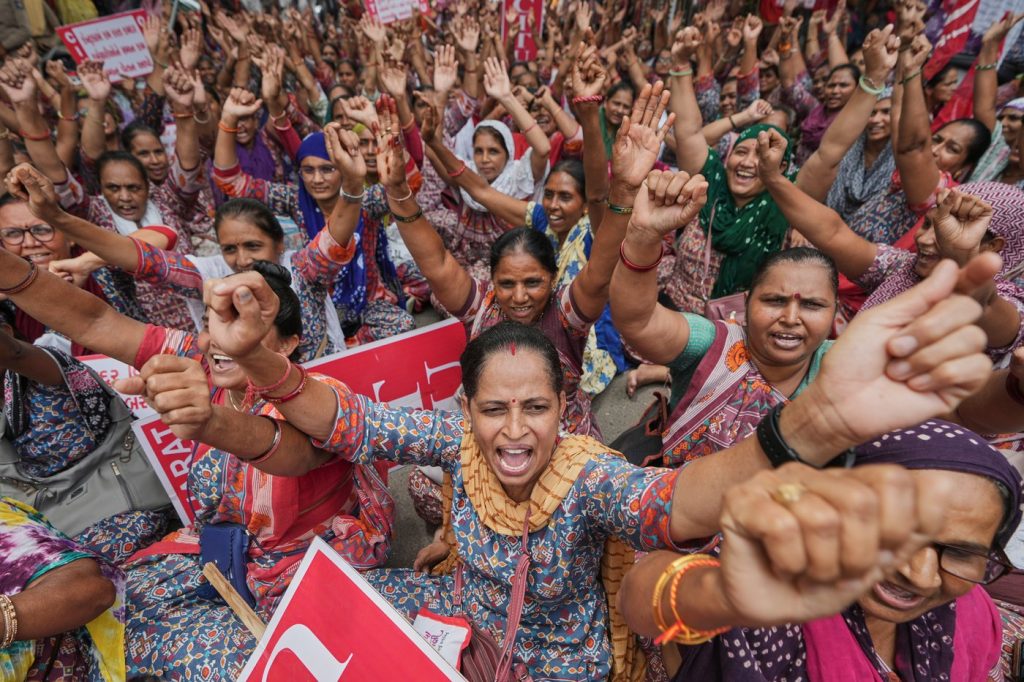On July 9, 2025, a nationwide strike in India saw hundreds of thousands of workers participating in a protest against Prime Minister Narendra Modi's privatization efforts and economic reforms. This industrial action, organized by a coalition of 10 major trade unions, was termed "Bharat Bandh," which translates to "Shut Down India." The strike resulted in partial disruptions across public services and manufacturing sectors, highlighting widespread discontent among workers and farmers.
Following the call for a one-day strike, various industries reported significant impacts. Coal mining operations ceased in several states, and transportation services, including trains, were blocked due to protestors occupying rail networks. Disruptions were also evident in banking, insurance, and supermarket operations. In Kolkata, protestors rallied at a local railway station, where they chanted anti-government slogans and burned an effigy of Prime Minister Modi. Additionally, in Mumbai, bank employees vocally opposed the privatization of state-run banks.
Reports indicated that traffic in Odisha was severely affected in some areas, while in Kerala, shops, offices, and schools remained closed, leaving roads remarkably deserted. The Indian government has not formally addressed the strike, consistently dismissing the claims made by these unions.
The demands put forward by the workers included higher wages, a halt to the privatization of state-run enterprises, the repeal of new labor laws, and the filling of government sector vacancies. Farmers' groups are also advocating for an increase in the minimum purchase price for essential crops like wheat and rice. Modi's administration has implemented reforms aimed at attracting foreign direct investment and enhancing local manufacturing through financial incentives.
Despite these measures, the trade unions express skepticism, calling for the new labor laws to be revoked. They contest the government's assertion that these reforms enhance ease of doing business, arguing instead that they undermine workers' rights. Amarjeet Kaur, General Secretary of the All India Trade Union Congress, stated that the government's intent appears to suppress workers in the guise of economic reform.
Tapan Sen, General Secretary of the Centre of Indian Trade Unions (CITU), which is aligned with a communist party and participated in the strike, reported widespread protests disrupting national highways and rail routes. His statements indicated that coal mining activities were largely halted and various sectors, including banking and manufacturing, also faced significant disruptions.
A. Soundararajan, a prominent union leader in Tamil Nadu, noted that around 30,000 protesting workers were detained by police during the strike. He confirmed that manufacturing activities at numerous companies were adversely affected as well.
The strike exemplified the mounting tensions between labor groups and the government, showcasing the ongoing resistance against policies perceived to benefit corporate interests at the expense of workers' rights and welfare. The situation poses additional challenges for Narendra Modi's administration as it seeks to reform the economic landscape of India amidst growing opposition from various sectors of society.











